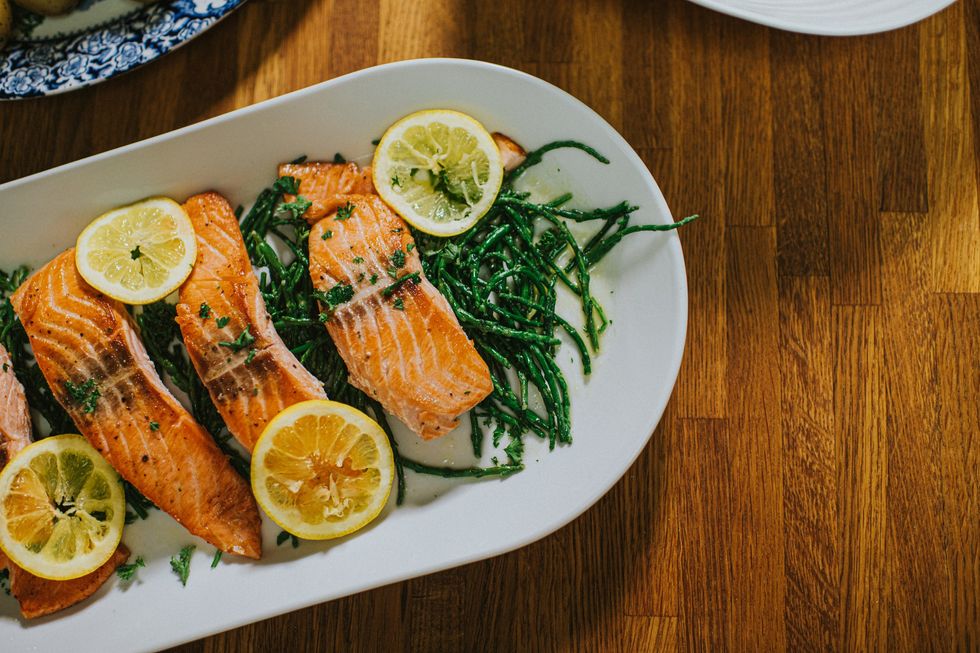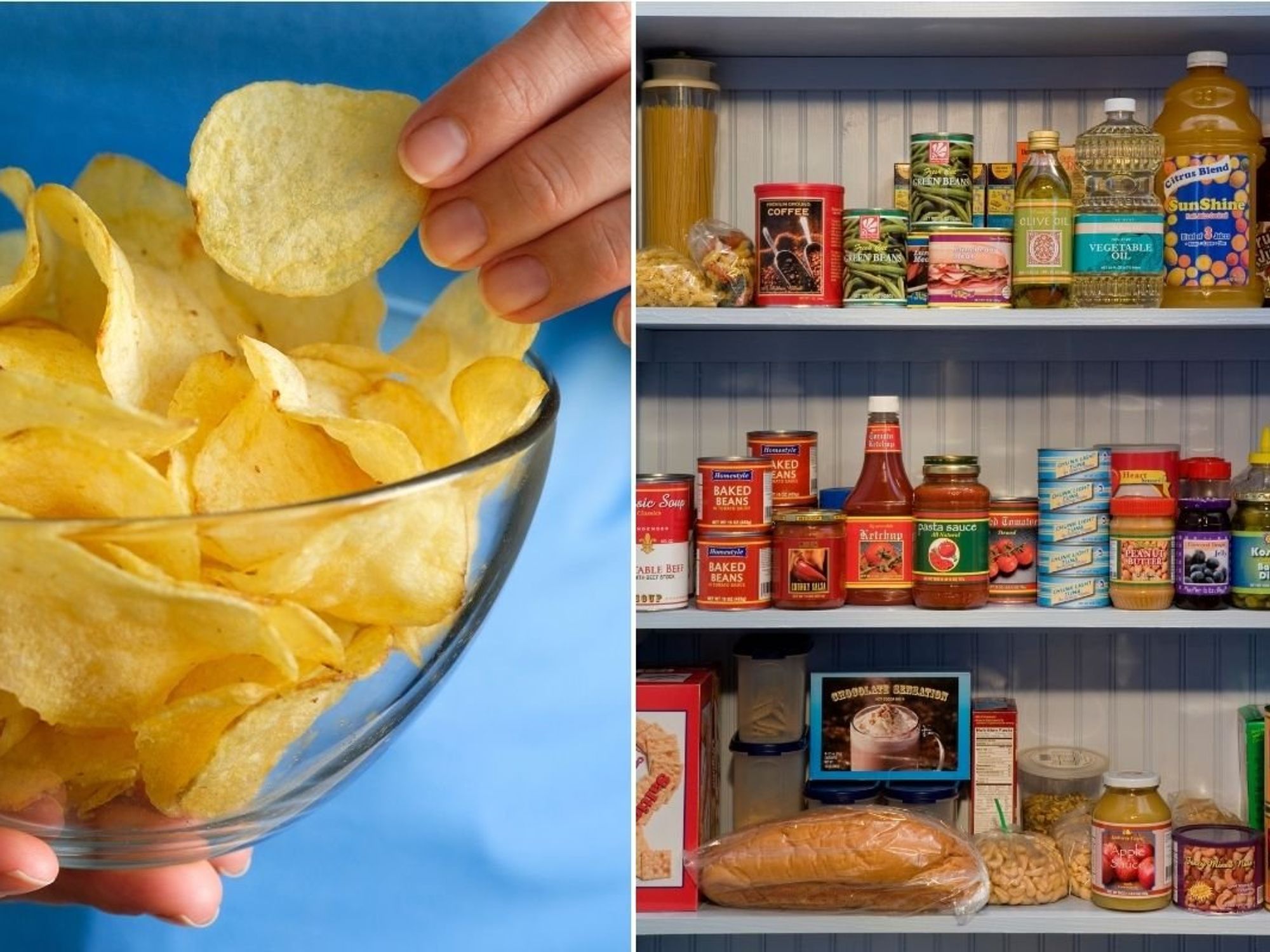'My skin drastically improved when I started eating an anti-ageing protein - it's my secret to looking youthful'

Collagen is 'the scaffolding that holds everything together'
Don't Miss
Most Read
Latest
Good skin care is obviously essential if you want to maintain a vibrant, glowing complexion. However, no amount of magic products can make up for a poor lifestyle.
For truly radiant skin, it's important to consider the impact diet can have, particularly as we age.
Collagen (a protein our bodies naturally produce) makes up around 80 per cent of the skin. It provides strength, support, and structure, and plays a vital role in the skin's cell renewal process.
However, as early as our 20s, our collagen levels deplete by about one per cent every year, with the existing collagen fibres becoming thinner and weaker too.
This is compounded by depleting levels of elastin, inevitably resulting in dryness, thinness, loss of elasticity, sagging, and fine lines and wrinkles.
As collagen is so integral to the skin, replenishing it becomes more important than ever as the years go by.
Indeed, for one nutritionist, consuming the essential protein is her "secret to anti-ageing".
Showing off her radiant complexion, Daphne (who goes by @daphnunez on TikTok) told her followers: "I'm not wearing a filter. My skin has drastically improved - elasticity, overall glow - it is going to improve if you consume collagen daily."
She explained: "If you consume collagen, it's going to help the synthesis of your own collagen - just make sure you're also consuming vitamin C because that's going to help with absorption."

'If you consume collagen, it's going to help the synthesis of your own collagen'
|TikTok / @daphnunez
The necessity of collagen should not be overlooked; it's completely vital for the body, not just your skin.
The experts at Holland & Barrett stated: "Have you ever wondered what keeps your skin firm, hair strong and joints flexible? The answer lies in collagen, a protein that plays a crucial role in maintaining the health of various parts of your body, including your skin, hair, nails, joints and bones.
"Collagen is the scaffolding that holds everything together, providing strength and structure."
In conversation with Healthline, certified holistic nutritionist Krista Goncalves said: "Diet plays a surprisingly large role in the appearance and youthfulness of your skin - and that all comes down to collagen."
LATEST DEVELOPMENTS:
 High-protein foods such as fish and legumes may boost collagen production | GETTY IMAGES
High-protein foods such as fish and legumes may boost collagen production | GETTY IMAGESConsuming collagen
The benefits of topical application are disputed by dermatologists because collagen is not naturally found on the skin's surface but in the deeper layers.
Oral collagen (via supplements or foods) is "believed to be more effectively absorbed by the body", according to experts at Harvard Medical School.
For those looking to incorporate collagen into their diets, the experts weighed in on how well it works.
They stated: "There is a lack of research to show that eating collagen can directly benefit skin or joint health.
"When digested in the stomach, collagen is broken down into amino acids, which are then distributed wherever the body most needs protein.
"Still, many foods that support collagen production are generally recommended as part of a healthful eating plan."
To improve your health and potentially your complexion, Harvard University named the best foods containing collagen and the best collagen-boosting foods to try.
Foods containing collagen
- Tough cuts of meat full of connective tissue, like pot roast, brisket, and chuck steak (although it's best to avoid a high intake of red meat for your health)
- The skin of fresh and saltwater fish
- Bone broth
- Gelatin
Foods to boost collagen production
- High-protein foods such as fish, poultry, meat, eggs, dairy, legumes, and soy may boost collagen production because they contain the amino acids that make collagen: glycine, proline, and hydroxyproline.
- Collagen production requires zinc (found in shellfish, legumes, meats, nuts, seeds, and whole grains) and vitamin C (citrus fruits, berries, leafy greens, bell peppers, and tomatoes).
Despite mixed opinions, many experts believe that enjoying more collagen-boosting foods is a great way to improve both your skin and hair.
Speaking to GB News, nutritional health coach Georgi Grogan revealed that despite the inevitable slowing of collagen production, hope is not lost if you make the right diet choices.
"There are a number of things that you can do to help support your body's natural collagen production, as well as foods to avoid to slow down this process and keep fine lines at bay," she said.
One GB News journalist also reported "striking" changes within weeks of drinking collagen.
Before changing your diet, it's always best to consult a doctor or dietician for tailored guidance.











